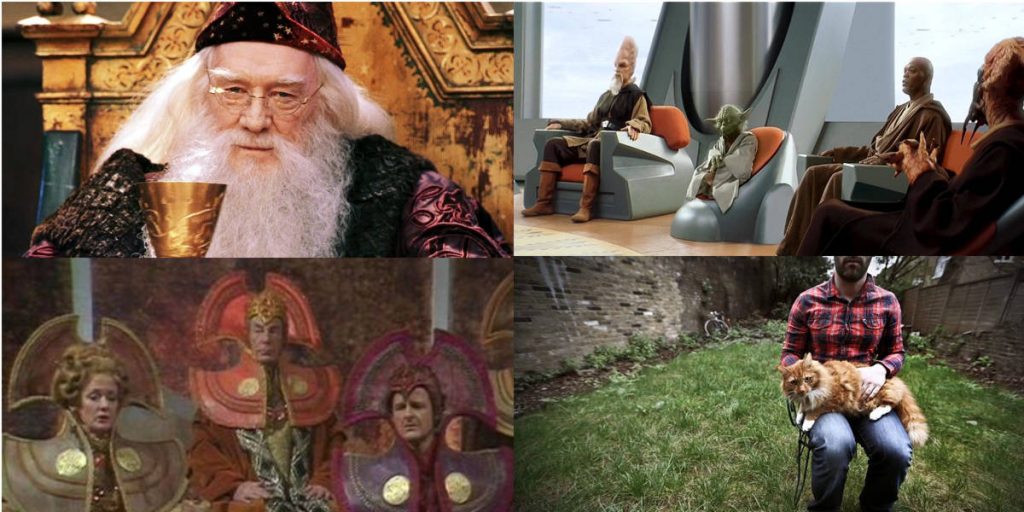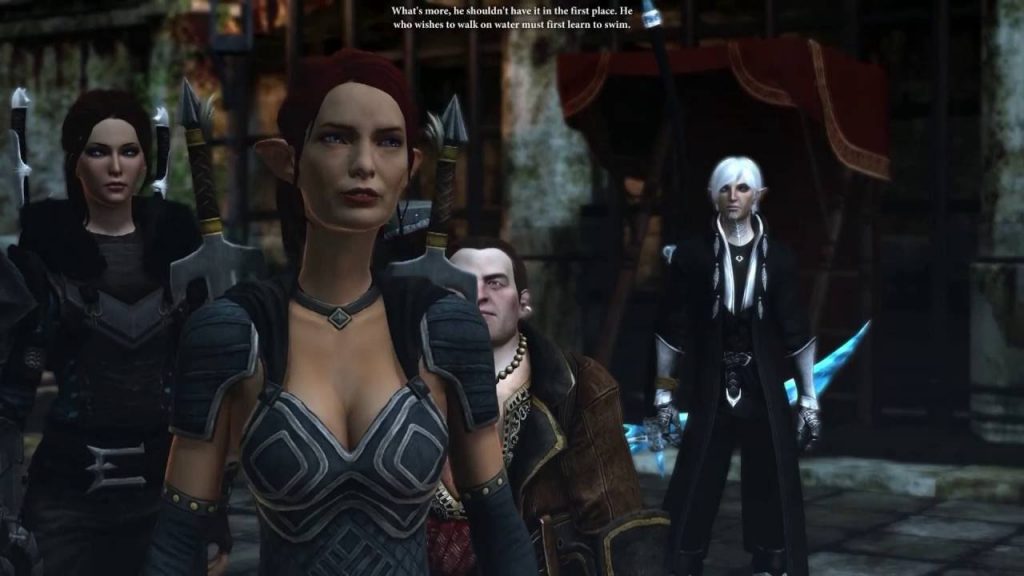
Gender-Inverted Trope: Philosopher Queens
In art, as in life, the trope of The Philosopher – found across media and genres – usually manifests as a male character, sage-like, with a tendency to impart useful information (although not always in the most efficient or transparent manner).

Those who ascend to rulership become Philosopher Kings[1]:
It is a more enlightened age. Perhaps a future, or a past long forgotten, when rulers are noble and just, and rule for their people, not just for themselves. Perhaps it is an Age of Reason, in which older, barbaric measures of manhood such as war and business have been phased out, and replaced solely with pure, unclouded Thought. Only those who have the capacity to Think have the right to Rule. In this realm, the Philosopher King is found.[2]

In this short but sweet piece of pop(culture)corn, we highlight some gender-inverted instances of the Philosopher and Philosopher King. Let us know your favourite, or other characters deserving the mantle of Philosopher Queen, in the comments or on Twitter/Tumblr/Facebook.
"Eternal life for those who can afford it means eternal control over those who can’t."
Quellcrist Falconer
Quell is an academic and political revolutionary in Richard Morgan’s Altered Carbon. The Netflix adaptation presents her as a fighting philosopher rebel queen, whose actions against the ruling elite are underpinned by her eponymous political philosophy:
Quellism is the political theory created by Quellcrist Falconer for the establishment of a hi-tech social democracy, having elements of socialism and anarchism. Quellism was an expression of Quell’s exasperation with both the inherent self-serving, elitist, corruption of right-wing politics and the back-biting, self-absorption of the left.[4]

Technological developments have allowed the rich to prolong their lives indefinitely, ‘resleeving’ their consciousness in new bodies – in the Altered Carbon universe, Quell notes, “Your body is not who you are.”[5] The political ramifications of this motivate Quell’s revolution:
The ebb and flow of life is what makes us all equal in the end […] We aren’t meant to live forever. It corrupts even the best of us…Eternal life for those who can afford it means eternal control over those who can’t.
Quell (S01E07)
Tallis
Tallis is an elven, Qunari assassin, from Dragon Age II’s “Mark of the Assassin” DLC. A convert to the Qun, Tallis engages in both epistemology and moral philosophy, contemplating her faith and her moral obligations.

In classic trope-philosopher fashion, she delivers pithy one-liners as she accompanies the party:
He who wishes to walk on water must first learn to swim.
She who swallows wisdom in tiny chunks avoids choking.
It’s not always meant to end in violence. There are other paths. They do not all need to lead to the same destination.
Doubt is the path one walks to reach faith. To leave the path is to embrace blindness, and abandon hope.
Princess Bubblegum
A literal philosopher queen – or at least, philosopher princess – Bubblegum rules the Candy Kingdom in Adventure Time, a prosperous land of sweet creatures with a tendency to explode when frightened. A metaphysician and philosopher of science, Bubblegum champions invention and empirical endeavours while denying the existence of magic:
Listen, all magic is scientific principles presented like “mystical hoodoo” which is fun, but it’s sort of irresponsible.
Princess Bubblegum, Wizards Only, Fool

In the course of the show, Bubblegum attends and organises conferences, fashions a potion to revive the dead, and creates a variety of creatures (including her own subjects) out of candy biomass:
As princess of candy kingdom, I’m in charge of a lot of candy people. They rely on me, I can’t imagine what might happen to them if I was gone… I am not going to live forever Finn, I would if I could, but modern science just isn’t there yet, so I engineered a replacement that could live forever.
Princess Bubblegum, Goliad

And, in true tropey fashion, Princess Bubblegum acts as a guide to the show’s adventuring heroes, Finn and Jake, sharing her wisdom and providing exposition:
Finn, sometimes you want someone and you want to kiss them and be with them, but you can’t because responsibility demands sacrifice.
Princess Bubblegum, Burning Low
"Doubt is the path one walks to reach faith. To leave the path is to embrace blindness, and abandon hope."
Mary Malone
Mary Malone is a physicist and the inventor of the eponymous device in Philip Pullman’s Amber Spyglass. Like Bubblegum, she is foremost a scientist, but Mary plays the role of the philosopher in guiding (and tempting) Lyra and Will. Drawing on her background as a former nun, she espouses her philosophy of religion as part of this process:
I stopped believing there was a power of good and a power of evil that were outside us. And I came to believe that good and evil are names for what people do, not for what they are.
Mary Malone, The Amber Spyglass

Sha'ira, the Asari Consort
Sha’ira appears in the Mass Effect series, offering “personal services as well as entertainment and conversation”[6], but she is particularly sought after for her advice. After providing assistance to the consort in the first Mass Effect instalment, Sha’ira offers the player character Shepard a ‘gift of words’: “an affirmation of who you are, and who you will become”. Shepard observes that, from description, the consort sounds like an oracle; in this and her advice she is much like the classic trope instances. Another character rejoins that Sha’ira is merely a woman, “with remarkable compassion and a generous spirit”.[7]

Sha’ira has been likened to a Greek hetaira – in both cases, depending on who you ask, they are described as sex workers, escorts, and/or elite, educated women.
Want to philosophise about other examples? Do so in the comments, or on twitter/tumblr/facebook.
Footnotes
[1] The original argument for why it’s a good idea for philosophers to be kings (or kings to be philosophers) see Plato’s Republic, Books VI-VII.
[2] https://tvtropes.org/pmwiki/pmwiki.php/Main/ThePhilosopherKing
[3] The Ruler of the Universe from The Hitchhiker's Guide to the Galaxy, as envisioned by the BBC (https://www.bbc.co.uk/programmes/profiles/RPVK2VZqX2qv6tQPTsLchK/man-in-the-shack
[4] https://altered-carbon.fandom.com/wiki/Quellism
[5] Altered Carbon, S01E01. If you’re interested in what makes you what you are, you can find out more here.
[6] https://masseffect.fandom.com/wiki/Sha%27ira
[7] Nelyna, Mass Effect
No comments
Start the conversation…